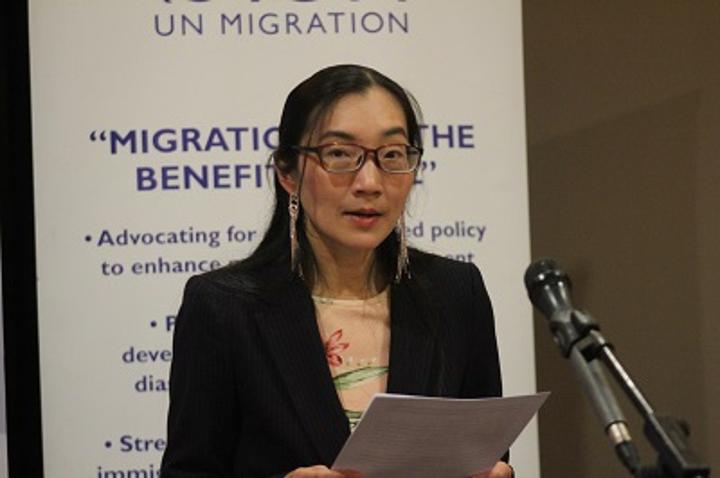Africa-Press – Lesotho. The c Organization for Migration (IOM) research findings on Mainstreaming Environmental dimensions into (Re) integration support to reduce the impact of
Climate Change in Lesotho have revealed that 28.6 percent of children and young people are more vulnerable to climate change induced effects. This presentation of the research on Migration and Climate Change impacts was tabled
in Maseru by the Lead Consultant Dr. Stephen Adawen. The research further indicates that the vulnerability of the Vulnerable Economic Groups which consist of herders, small holder farmers, informal sector workers in
garment industry is at 28.6 percent, women at 23.8 percent and 19.0 percent for the elderly and persons with disability. The report states the perceived effect of planned relocation on local communities due to Climate
or Environmental Change, hazards and impacts thus: 42.8 percent increase in population and competition for resources, 28.6 percent spread of diseases (Sexually
Transmitted Infections, Covid-19, HIV and Tuberculosis), 14.3 percent Increase in food production and sustenance and 14.3 percent increase in tensions as bad
people or thieves increase in crimes. The conclusions and recommendations of the research include among others ensuring better coordination and synergies across government agencies and levels in
mainstreaming climate change, migration and gender- working in silos, capacity building and awareness creation on the impacts of climate change and disaster
on human mobility-address mobility dimensions of disaster and immobility. Development and inclusion of indicators on climate change and disasters, collection of disaggregated data of human migration, return and motivations,
skills intelligence, socio-economic and ecological implications, considering community participation for climate change adaptation project implementation.
While opening the event, IOM Lesotho Head of Office Eriko Nishimura expressed delight over the opportunity for stakeholders and everyone to get to listen to the key
findings of the research. “I cannot over emphasize the importance of Migration, Environment and Climate Change (MECC) linkage in Lesotho and I am excited to
pilot this important study to collect the evidence on the issues around environmental-induced migration and displacement, climate change-induced migration in Lesotho and propose the way forward,” she highlighted.
Nishimura disclosed that IOM’s work on MECC involves supporting authorities to address complex migration, environment and climate matters, ensuring that responses to
support migrants and vulnerable communities are enabled and improved while ensuring human mobility matters are integrated in key policy areas dealing with
climate, environment and land. She said “Building on earlier work and in response to Member States’ concern about climate change and environment as a driver of migration, IOM set up the new department called
MECC division in our headquarter Geneva in 2015. The division formulates global strategies and policies that have two main objectives, namely: addressing
environmental migration concerns as a standalone area of work and mainstreaming environmental and climatic factors in other migration management sectors.
The division also provides policy and technical support to States, opens new partnerships with experts’ entities in climate change, environmental degradation and slow onset natural process and contributes to building stronger evidence base for policy and activity development.”
For More News And Analysis About Lesotho Follow Africa-Press






